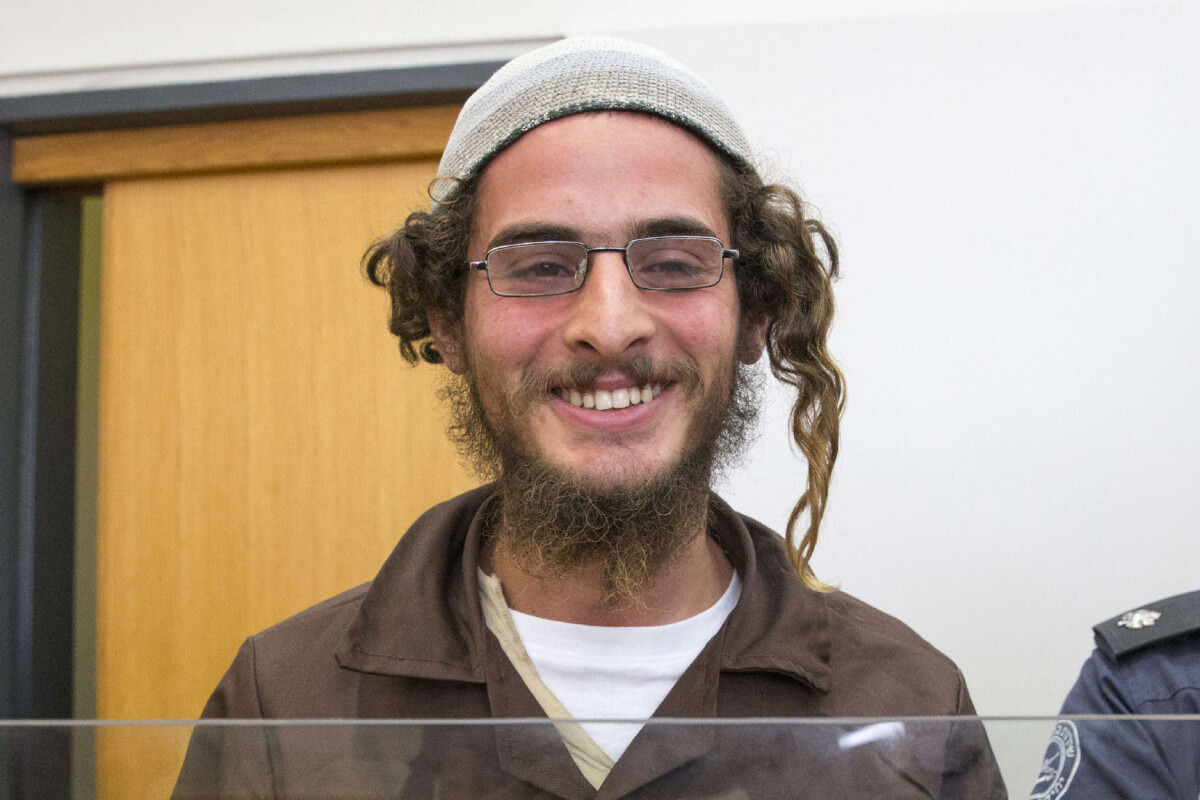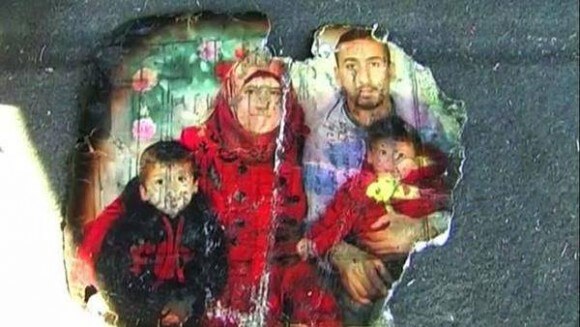About a month ago, I glanced at a bag of Duchy Organics potatoes I’d ordered online, and was surprised to discover that they came from Israel. I checked a bag of Duchy carrots in the fridge and saw that they too were Israeli. I was surprised because I’d thought all Duchy products were British. A quick Google search elicited the information that when Waitrose, a UK supermarket chain, licensed the Duchy brand from its founder, Prince Charles, the company also expanded its supplier network to include non-UK businesses. Claiming that ‘Good food’ ‘Good farming’ and ‘Good causes’ remain its guiding principles, the Waitrose website explains that ‘[w]here a reliable British supply isn’t available due to climate or seasonal availability, we make an organic choice available via reputable growers around the world.’
That evening, I wrote a letter to the company’s managing director contending that Israel – a country where there is a longstanding and systematic campaign to divert water resources from Palestinian agricultural enterprises, not to mention an escalating campaign of terror against Palestinian olive farmers who are regularly attacked during the harvest and thousands of whose trees have been uprooted – seems like a rather dubious source for Duchy products. Ten days later, I received a reply insisting that all Israeli products are traceable to within pre-1967 borders. For the uninitiated, this means that they don’t come from Israeli settlements.
‘Long live Messiah’
That exchange has been on my mind since the morning of 31st July when I awoke to the news that an 18 month-old toddler, Ali Dawabshe, had burnt to death when Jewish settlers attacked his family home in Duma in the West Bank district of Nablus. ‘Revenge’ and ‘long live Messiah’ had been graffitied on the walls. Ali’s four year-old brother, Ahmed, was also injured in the attack, and his parents were left in a critical condition with burns to 80% of their bodies. His father Saad died on Saturday. And yesterday evening, as I was leaving my children’s bedroom after putting them to sleep, I spotted a tweet reporting unconfirmed rumours that Ali’s mother Riham died too, leaving little Ahmed an orphan. He’s almost the same age as my own kids.
In the meantime, Laith al-Khaldi was shot in the back by an Israeli sniper while protesting the murderous attack on the Dawabshe home, and Mohammed al-Masri was gunned down by the IDF near the Gaza border fence. Both were 17. And while Saad Dawabshe took his last breath in an Israeli hospital on Saturday, another arson attack by extremist settlers was underway in Duma. This time the firebombs didn’t reach their targets inside the house, though, so there was no coverage in the mainstream media, no hand wringing, no soul searching.
Yes, soul searching. That’s what Jodi Rudoren, The New York Times‘s Jerusalem bureau chief who is well-known to hobnob with the Israeli political elite from the comfort of her Palestinian-free neighbourhood in West Jerusalem, alleged was happening across Israel in the aftermath of Ali Dawabshe’s death. Israelis were supposedly ‘in shock’ over the incident, which was the handiwork of ‘extremist’ settlers. Lieutenant Colonel Peter Lerner labelled it a ‘barbaric act of terrorism’ while Benjamin Netanyahu called the perpetrators ‘murderers’ and insisted that they would be brought to justice. Here in the UK, The Guardian‘s comments editor, Jonathan Freedland, perplexingly used the attack as proof of political diversity within Israeli society, rather than evidence of a deep vein of racism and denial that runs through it.
Whitewashing the crime scene
Suspects in the arson attack were rounded up and a dramatic show made of their ‘administrative detention’, an Israeli judicial practice of holding suspects indefinitely without charge, which is usually reserved for Palestinians. In fact, the Israeli high court ruled just the other day that it’s acceptable to force feed prisoners who undertake hunger strikes to protest this indefinite detention. Consequently, yesterday Israeli authorities roved from hospital to hospital in search of a doctor willing to force feed Mohammed Allan, who hasn’t eaten for 57 days, whilst simultaneously releasing all of the suspects in the Dawabshe arson attack.
The effort to whitewash the crime scene, wiping it clean of politicians’ prints, brought forcefully to mind the parsing of morality that infects the entire discourse around Israel/Palestine, which was on vivid display in the letter I received from Waitrose. Here in the West, politicians from left to right rely on fairy-tale concepts like ‘pre-1967 borders’ as though Israel’s settlements policy originates in Area C, rather than Tel Aviv where it is conceived, incubated, nurtured and administered. It strikes me that this calculated sleight of hand is a proxy for our leaders’ discomfort about the contradiction between Israeli ‘democracy’ and its ‘Jewishness,’ like forced laughter or a bone-crushing handshake. There is a deliberate and cynical disconnect between an act and its meaning.
Indeed, their marching orders come straight from Tel Aviv, where the Israeli Prime Minister hawks to prospective settlers from Brooklyn to Paris and beyond an unassailable entitlement to occupy Palestinian land, sweetened by a supply of government-issued automatic weapons, and then trots out the lexicon of outrage when those settlers display the very sense of bloody-minded entitlement he cultivates.
‘Price tag’ attacks and settler impunity
After all, so-called ‘price tag’ attacks such as the one against the Dawabshe family originated as a response by settlers (of whom there are now more than half-a-million) to Israeli courts ruling their settlements illegal. What’s more, they’re common: the UN’s Office for the Coordination of Humanitarian Affairs (OCHA) estimates that there have been some 2100 settler attacks since 2006 including 120 in the 222 days of 2015 so far. The Israeli human rights group Yesh Din says that 92.5% of Palestinian complaints against settlers are dismissed without charge and only 1.4% of those who murder Palestinian children are ever indicted. This might be news to you, but rest assured that Bibi and his mates know all about it.
Twenty years ago, when I was a journalism student at Ryerson University in Toronto my classmates and I were urged to think carefully about ethical issues that might arise in the work we hoped to do. I recall one class when our prof showed us a photo of a black man in street clothes being chased by two cops. We were invited to speculate about the scene that had been captured, and you can probably guess what we thought. But we were wrong. In reality, the shot consisted of a black plain-clothes cop and his colleagues in uniform chasing a suspect who was outside the frame.
At the time, I found this lesson rather crude, a sort of racial honeytrap designed to expose some putative bias on our part, and I’m still not convinced my reading would have been much different had the guy in street clothes been white. Nonetheless, for me the distorted semantics thrown up by faux debates about ‘extremism’, ‘terror’, and even ‘democracy’ stoke anger and anxiety not just about blame, but also about shame. For while all of us now know what happened to Ali Dawabshe, we still inhabit a world in which the UK’s Labour party leadership hopefuls queue up to declare their allegiance to Israel less than a year after the bloodiest Gaza siege in a decade. A notable exception is Jeremy Corbyn, of course, who The Guardian‘s Michael White attempted to smear by describing him as ‘pro-Hamas’ just a day before Ali Dawabshe was burnt to death. Did that death give Michael White pause? I doubt it.
The scalp of our silence
It’s a world in which Conservative MPs queue up to prevent academic debate about Israeli policy, and Tory Prime Ministers defend the slaughter of unarmed Gazan civilians sheltering in UN schools by the same forces that have maintained an eight year siege against those same civilians. These people are unashamed by their unconditional support for a regime that made the death of this toddler and his parents entirely predictable, if not inevitable. Indeed, they split linguistic and moral hairs in order to justify their shrewd indifference. They tell themselves and each other that this hell on earth is someone else’s normal. And conversely, those of us who queue up to speak out about Palestinian dispossession and conditions on the ground in Israel and the OPT are routinely shamed as ‘extremists’ and ‘anti-Semites’ by politicians across the so-called spectrum. They require the scalp of our silence.
Sure, pictures can be misleading, dangerous, manipulative; just look at the ‘fleeing’ black man I described above. But so can words. Perhaps the best we can do, then, is dare to look, read, listen to our hearts, and write what we discover there in the hope of piecing together a morally coherent landscape. Here are a handful of photos from Palestine and Israel that came across my Twitter feed this week. Having looked and listened and written as much as I can bear, I confess that today my own heart is a little more broken.




A version of this post first appeared on Juliana Farha’s website.



Complete non-sequitur. Water is the most fungible of things. Palestinian water is used to grow all Israeli produce. It would be interesting to see a “trace” put on the water used to grow carrots in ’67 Israel.
Great article. Thanks for pointing out the ongoing contrasts.
RE: “In the meantime, Laith al-Khaldi was shot in the back by an Israeli sniper while protesting the murderous attack on the Dawabshe home, and Mohammed al-Masri was gunned down by the IDF near the Gaza border fence. Both were 17.” ~ Juliana Farha
SEE: “Israeli Troops Furious at New West Bank Rules of Engagement”, by Jason Ditz, Antiwar.com, August 12, 2015
• Troops Can’t Shoot Fleeing Palestinians in the Back Anymore
SOURCE – http://news.antiwar.com/2015/08/12/israeli-troops-furious-at-new-west-bank-rules-of-engagement/
BTW, has anyone been arrested yet in the Duma killings?
Thank you, Juliana, for a thought-provoking article. It gets worse, though – the “Jewish Chronicle” has accused the likely new Labour leader, Jeremy Corbyn, of anti-Semitism:
http://www.theguardian.com/politics/2015/aug/13/jewish-chronicle-accuses-jeremy-corbyn-associating-holocaust-deniers#comment-57448264
… hard on the heels of their recent attack on the BBC’s Lyse Doucet.
That photo of Meir Ettinger disturbed me when it first appeared in an earlier MW article. Where had I seen that smug “you can’t touch me” expression before? Then I remembered – the English racist thugs who murdered black teenager Steven Lawrence 20 years ago. Well, we got two of them behind bars, but it took an eternity.